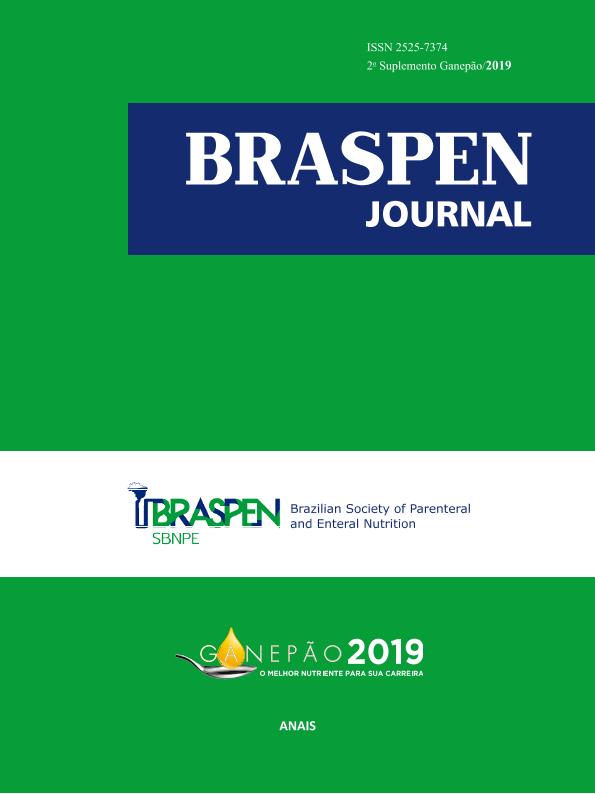Evento
Bioavailability and intestinal beneficial effect of folate produced by selected lactic acid bacteria in bioenriched fermented milk
Cucick, Ana Clara Candelaria; de Moreno, Maria Alejandra ; Leblanc, Jean Guy Joseph
; Leblanc, Jean Guy Joseph ; Gombossy de Melo Franco, Bernadette Dora
; Gombossy de Melo Franco, Bernadette Dora
 ; Leblanc, Jean Guy Joseph
; Leblanc, Jean Guy Joseph ; Gombossy de Melo Franco, Bernadette Dora
; Gombossy de Melo Franco, Bernadette Dora
Tipo del evento:
Congreso
Nombre del evento:
8º Congresso Brasileiro de Nutrição Integrada; 21º Fórum Paulista de Pesquisa em Nutrição Clínica e Experimental ; 4º Congresso Brasileiro de Prebióticos, Probióticos e Simbióticos
Fecha del evento:
11/06/2019
Institución Organizadora:
Brazilian Society of Parenteral and Enteral Nutrition;
Fórum Paulista de Pesquisa em Nutrição;
Federación Latinoamericana de Nutrición Parenteral y Entera;
Título del Libro:
Libro re resumen
Título de la revista:
Braspen Journal
Editorial:
Sociedade Brasileira de Nutrição Parenteral e Enteral
ISSN:
2525-7374
Idioma:
Portugues
Clasificación temática:
Resumen
Introdução: Folate deficiency is a common problem that can cause severe health issues. Excessive intake of folic acid can cause severe side-effects. The production of the natural form of this vitamin by selected LAB it’s a safe alternative to increase folate intakes. Objetivos: The aim of this study was to evaluate the bioavailability of folate produced by some selected lactic acid bacteria strains in fermented milk, using an animal model. Materiais e Métodos: Five Streptococcus thermophilus and one Lactobacillus plantarum strains, were added alone and in co-cultures to skim milk, and tested for folate production after 24h at 37ºC. The co-culture that produced the highest folate levels was tested for bioavailability of the produced folate, using a depletionrepletion model in BALB/c mice. The experimental study comprised of 14 days of depletion and 21 days of repletion of vitamin B9. 30 BALB/c mice were randomly divided into 6 groups: 1. control (only control diet); 2. depleted (only deficient diet); 3. depleted-repleted (control diet); 4. bioenriched fermented milk (BFM) (milk fermented with the selected strains); 5. unfermented milk (pasteurized milk) and 6. unfermented milk added of folic acid (same concentration of the BFM). The mice were sacrificed at the end of the experiments (35 days) by cardiac puncture, and the blood, kidneys, liver, spleen and intestine were removed for quantification of folate by the microbiological assay method and histological tests (intestine). Resultados: The highest amount of folate produced by co-cultures was 300 ng/mL (St. thermophilus 34v and Lb. plantarum 16cv). The concentration of folate in the liver, spleen and red blood cells was higher in the BFM group compared to the depleted group, and was similar to that in the depleted-repleted and control groups. The haemogram indicated that haemoglobin, haematocrit and red blood cells were higher in the BFM group than in the control group, while these indicators were lower in the depleted group. Folic acid added to the milk did not affect these indicators. At the intestinal level, the depleted group caused a decrease of the villi length and an increase in the crypts length, meaning that the absence of this vitamin damages the intestinal mucosa. The BFM and the milk with folic acid resulted in a good villi/crypt length relation, equal or better than the control group. Conclusão: To the best of our knowledge, this was the first intestinal level study in mice that found beneficial health outcomes of the intake of a bioenriched fermented milk with selected folate producing lactic acid bacteria. In addition, the increase of the haemoglobin, haematocrit and red blood cells suggest that the bioenriched fermented milk had a beneficial effect in the animals. Acknowledgements: FAPESP 2013/07914-8 and 2016/50480-7.
Archivos asociados
Licencia
Identificadores
Colecciones
Eventos(CERELA)
Eventos de CENTRO DE REFERENCIA PARA LACTOBACILOS (I)
Eventos de CENTRO DE REFERENCIA PARA LACTOBACILOS (I)
Citación
Bioavailability and intestinal beneficial effect of folate produced by selected lactic acid bacteria in bioenriched fermented milk; 8º Congresso Brasileiro de Nutrição Integrada; 21º Fórum Paulista de Pesquisa em Nutrição Clínica e Experimental ; 4º Congresso Brasileiro de Prebióticos, Probióticos e Simbióticos; São Paulo; Brasil; 2019; 53-53
Compartir



